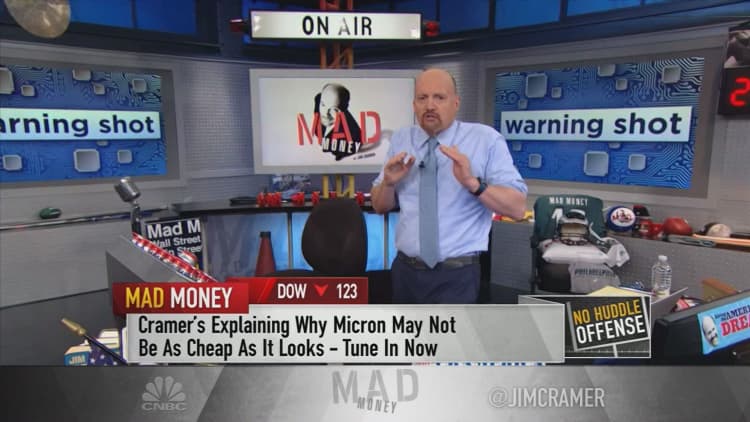Micron shares will thrive this year because of strong demand from several technology markets, according to one Wall Street firm.
Morgan Stanley reiterated its overweight rating on Micron shares, citing its sales growth from the cloud computing business.
The company's shares closed up 5 percent Wednesday after the report.
"We see a positive risk/reward skew from here," analyst Joseph Moore wrote in a note to clients Wednesday. "Near-term conditions are in fact exceptional, and the exceptional cloud spending that has driven such conditions seems likely to persist. So, our 'stronger for longer' thesis remains intact."
Moore reaffirmed his $65 price target on Micron shares, representing 34 percent upside to Tuesday's close.
The analyst said Micron's customer diversification has improved with broader demand from the PC, smartphone and cloud data center markets compared with previous cycles. He expects the company's share price to do better later this year.
"With DRAM prices relatively stable even as Apple bottoms out in 2q, we think that sentiment can swing back to the positive side as we head into stronger seasonality," he wrote. "We do see NAND prices under more pressure, and have had that view since November, but expect Micron to reduce costs roughly in line with price declines."
Shares of Micron are up 18 percent so far this year through Tuesday versus the S&P 500's flat return.



